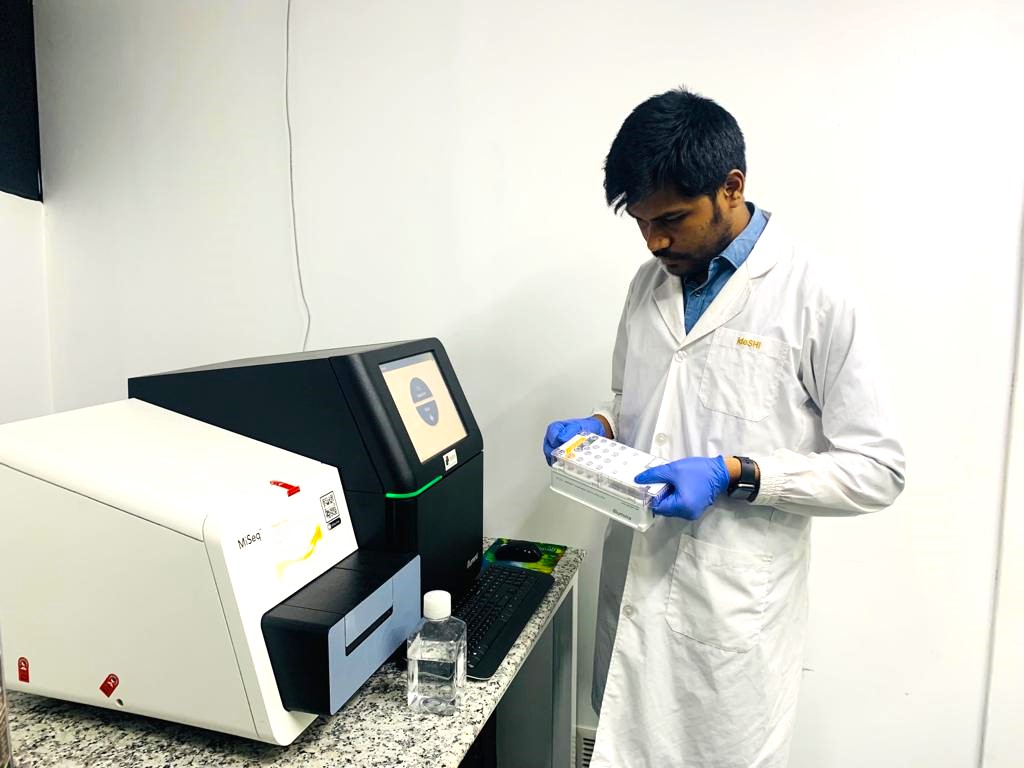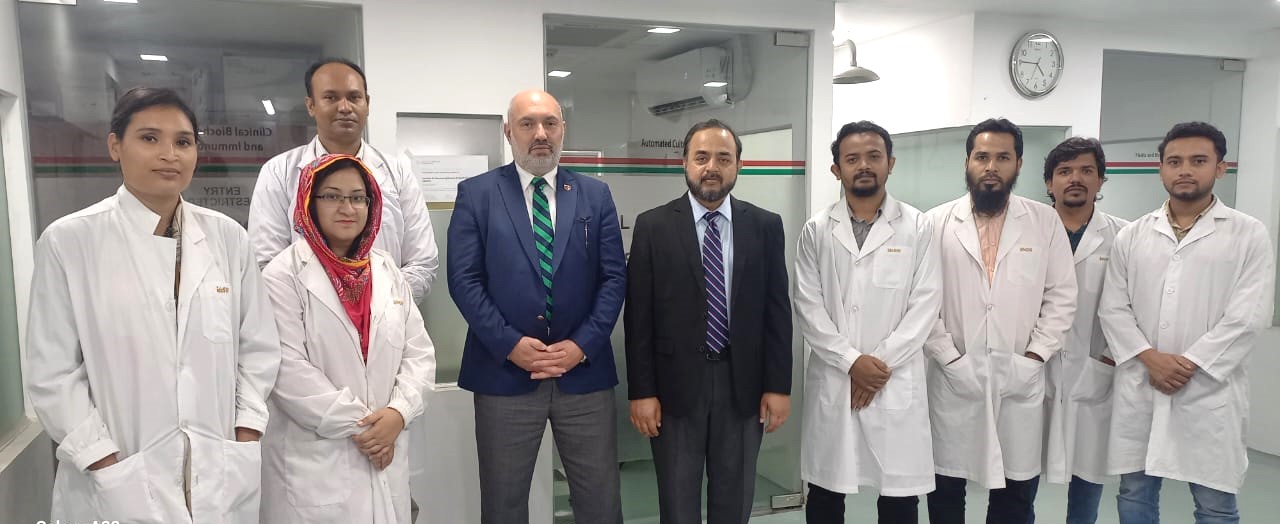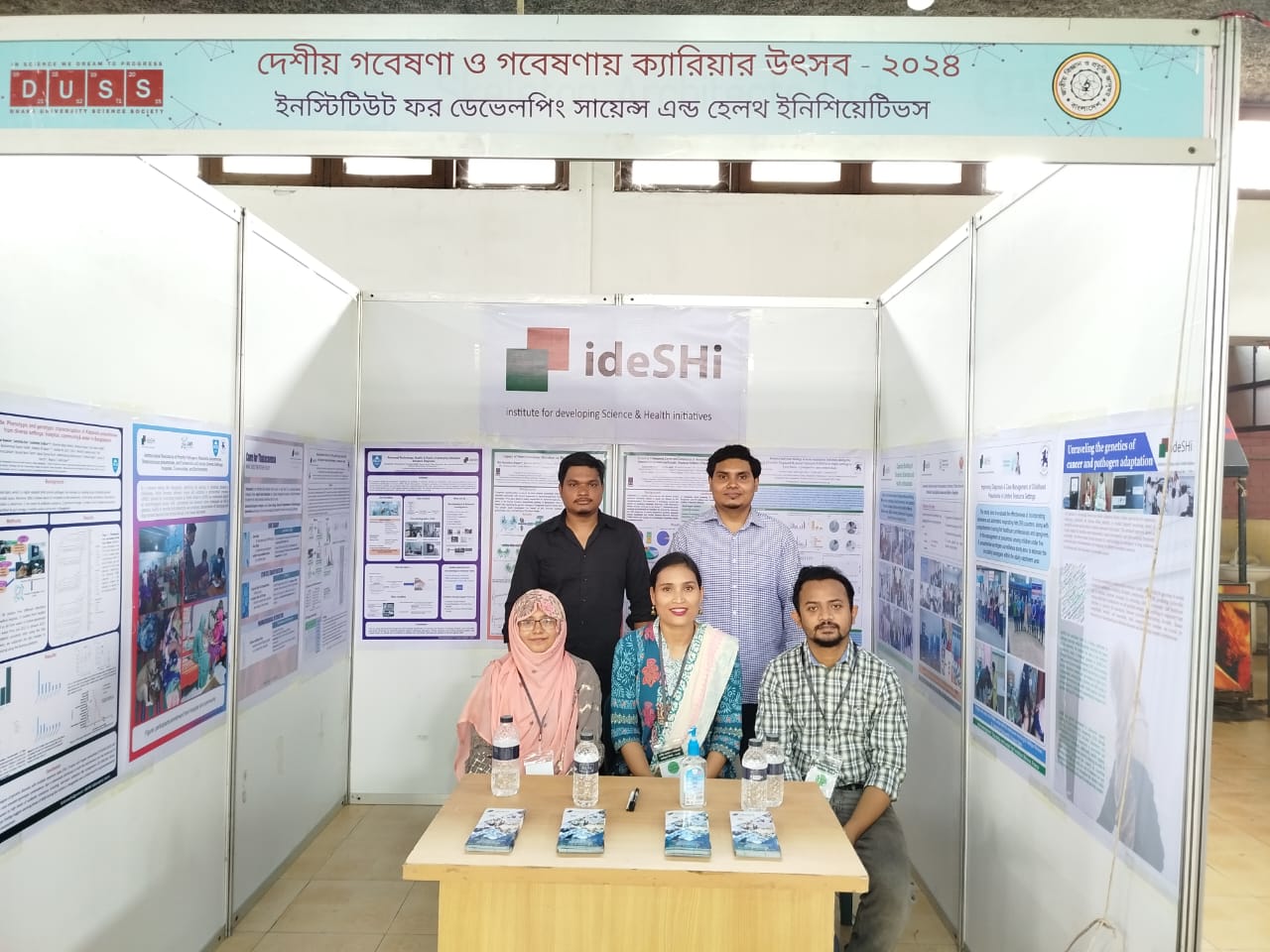Program Lead
Dr. Mohammad Tanbir Habib
Communication
Mahin Hasan ([email protected])
Abstract
BRCA1 and BRCA2 are tumor-suppressing genes, required by the DNA damage-repairing pathway to maintain genomic stability. Malfunctioning of the BRCA1 or BRCA2 gene via hereditary or somatic mutation can cause breast/ovarian cancer. Approximately 15% to 20% of all women with invasive ovarian cancer carry pathogenic mutation in one of the two BRCA genes. The frequency of BRCA mutations among ovarian cancer patients varies between ethnic groups. For example, in Jewish population approximately 30% to 40% women with ovarian cancer carry pathogenic mutations in BRCA1 or BRCA2 gene, while the frequency of pathogenic BRCA mutations has been estimated at 1 in 12 cases of ovarian cancer in French-Canadian. In Bangladesh, the frequency of BRCA associated ovarian cancer is still unknown. In this study, we aim to determine the frequency of BRCA associated ovarian cancer in Bangladesh.
The results will provide a comprehensive overview of association between BRCA mutations and different histologic subtypes of ovarian cancer and their clinical behavior. We will screen for germline and somatic mutations within the BRCA1 and BRCA2 genes in surgical specimens of 100 high-grade epithelial ovarian cancer patients. Our collaborators for this project are the National Institute of cancer Research and Hospital (NICRH), the Bangladesh Specialized Hospital (BSH) and the International Centre for Diarrheal Disease Research, Bangladesh (icddr,b). This primary research work will allow researchers to undertake clinical trials on patients with BRCA associated ovarian cancer, for whom PARP inhibitors can be applicable. The ultimate net gain is improvement in Progression Free Survival (PFS) and overall survival (OS) of patients with BRCA associated ovarian cancer. The finding of this study will be helpful for the gynecologic oncologists to utilize genetic testing more effectively and predict ovarian cancer prognosis. The inherited information will also be helpful for preventing the disease in first-degree relatives and decide appropriate therapy.






